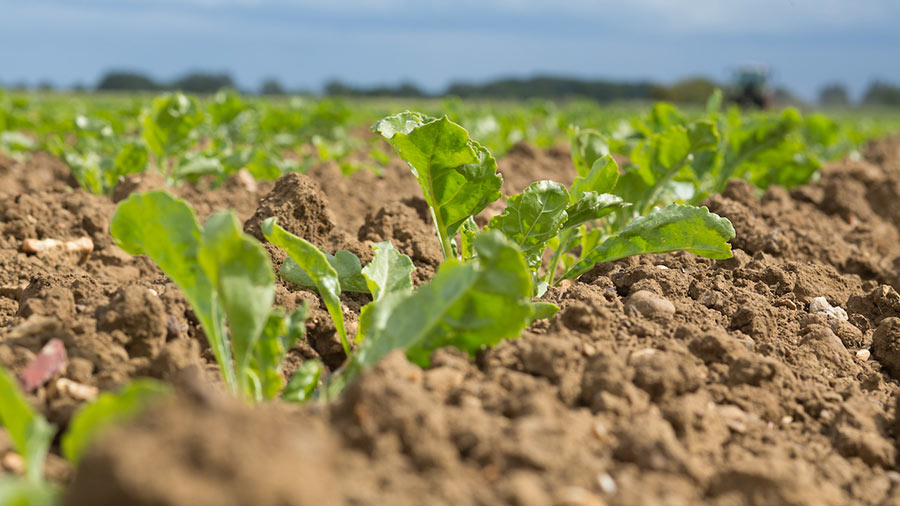Sugar beet seed treatment gets emergency approval
 © Tim Scrivener
© Tim Scrivener The government has approved an emergency application for sugar beet growers to use neonicotinoid treated seed to combat virus yellows in 2021.
It follows a devastating season for the crop – which has seen major losses to the disease.
See also: Plea for seed treatment to save sugar beet
Neonicotinoid seed treatments were banned in 2019 over concerns that the chemicals are harmful to bees and other pollinators.
In a statement, Defra said it had carefully considered all the issues and would let growers use the “Cruiser SB” seed treatment subject to a number of conditions.
“This is in recognition of the potential danger posed to the 2021 crop from beet yellows virus,” said the statement on Friday (8 January).
Limited use
The emergency authorisation for the short-term use of the product – and its placing on the market – will last for no more than 120 days.
Defra said the authorisation was necessary because there was no other way of containing virus yellows and use of the product would be “limited and controlled”.
It added: “Sugar beet is a non-flowering crop and the risks to bees from the sugar beet crop itself were assessed to be acceptable.”
Conditions are attached to the emergency authorisation to ensure that no flowering crops are planted as following crops for a period of at least 22 months.
The aim is to minimise the risk to bees – and the period of exclusion will be extended to 32 months for oilseed rape.
Ravaged crops
Sugar beet crops have been ravaged by virus yellows during the 2020-21 season – prompting some farmers to stop growing the crop.
Yields have been down by as much as 80%, causing some growers to lose thousands of pounds.
NFU Sugar board chairman Michael Sly said: “I am relieved that our application for emergency use of a neonicotinoid seed treatment for the 2021 sugar beet crop has been granted.
“Any treatment will be used in a limited and controlled way on sugar beet, a non-flowering crop, and only when the scientific threshold has been independently judged to have been met.”
Virus yellows disease was having an unprecedented impact on Britain’s sugar beet, added Mr Sly.
“This authorisation is desperately needed to fight this disease. It will be crucial in ensuring that Britain’s sugar beet growers continue to have viable farm businesses.”
“The sector continues to work as quickly as possible to find long-term solutions.”
Last resort
Beet processor British Sugar has earmarked £12m over three years to partially compensate growers with crops affected by virus yellows.
But the scheme only covers up to 45% of losses, with compensation capped at a 35% yield loss.
British Sugar agriculture director Peter Watson said: “The situation faced by growers has been unprecedented and this application was a last resort.
“While there will be restrictions for the following crop, the treatment will be able to be used in a limited and controlled way when high aphid conditions are expected.
“We are continuing our work as an industry to tackle virus yellows in the medium and long term, including through seed breeding programmes.”

